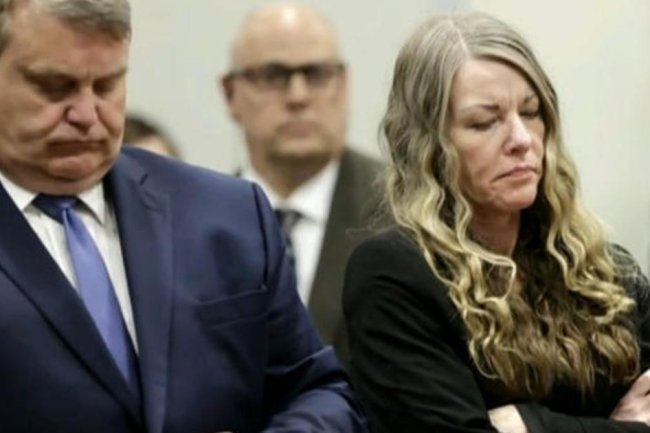Trump’s Lawyers Are Back in Court in the Documents Case. Here’s What to Expect.
All eyes will be on Judge Aileen Cannon at her first hearing in the unprecedented criminal case Donald Trump was charged with 37 counts in the investigation into his handling of classified documents. Photo Illustration: Xingpei Shen By Jan Wolfe and Sadie Gurman July 18, 2023 7:00 am ET The first pretrial hearing in the federal prosecution of former President Donald Trump on charges of breaching the Espionage Act is set for Tuesday before U.S. District Judge Aileen Cannon. Here are some things to look fo

Donald Trump was charged with 37 counts in the investigation into his handling of classified documents. Photo Illustration: Xingpei Shen
The first pretrial hearing in the federal prosecution of former President Donald Trump on charges of breaching the Espionage Act is set for Tuesday before U.S. District Judge Aileen Cannon.
Here are some things to look for from the hearing, which begins at 2 p.m. in Fort Pierce, Fla.
Will Judge Cannon tip her hand on how she sees the case?
Tuesday’s hearing opens Cannon’s high-profile role presiding over the unprecedented criminal case against a former president and current presidential candidate.
A magistrate judge last month handled Trump’s arraignment, a brief court hearing in which he pleaded not guilty to 37 charges that he illegally retained and shared classified national-security documents after leaving the White House, including at his Florida Mar-a-Lago resort, and directed his staff to help him evade authorities’ efforts to get them back. The case also includes six charges against Trump aide Walt Nauta, including conspiracy to obstruct justice and making false statements. He too has pleaded not guilty.
Legal observers will be closely watching Cannon, whom Trump appointed to the federal trial court in South Florida in late 2020. The former president’s case was randomly assigned to her, a development Trump’s legal team greeted as an early stroke of luck in his defense.

Aileen Cannon, seen at a virtual nomination hearing in 2020, was confirmed to the federal bench days after Donald Trump lost his re-election bid that year.
Photo: U.S. Senate/Associated Press
That view was based in part on how Cannon presided last year over a lawsuit the former president brought objecting to the Federal Bureau of Investigation’s August 2022 search of Mar-a-Lago. She issued several rulings in Trump’s favor, including appointing an outside arbiter to review whether documents seized from Mar-a-Lago fell under client-attorney or presidential privileges and should be kept from the view of investigators. An appeals-court panel later overturned her decision and disbanded the review process, saying there was no justification for treating Trump differently from any other target of a search warrant.
Cannon, who has been a judge for just over three years, could rule on efforts by Trump’s lawyers to dismiss charges. And she will act as a gatekeeper for the trial, ruling ahead of the proceeding on what evidence and testimony the two sides present to jurors.
“She needs the public to know that she is going to be fair,” said John Fishwick, who served as the U.S. attorney for the Western District of Virginia during the Obama administration. “It’s important for her to be active and engaged. If she is passive and quiet, people are going to be concerned that the moment is too big for her.”
Will Cannon set a trial date?
She might but doesn’t have to. Cannon originally set as a placeholder an August trial date, which prosecutors then asked to be moved to December. In a July 10 court filing, Trump’s legal team asked Cannon for an indefinite delay, saying the former president can’t have a fair trial until the November 2024 presidential election has been held. The prosecution filed a countermotion three days later, saying there were no grounds for any delay.
Cannon hasn’t yet ruled on the matter and could indicate her views from the bench during Tuesday’s hearing. Even if she doesn’t set a firm trial date, she could give the public a sense of the timetable she envisions.

Donald Trump’s lawyers have indicated they would seek to make public as much sensitive evidence as possible.
Photo: Joe Raedle/Getty Images
How much evidence will be made public?
Looming large in Tuesday’s hearing will be a law that governs questions about what national-security information can be discussed at trial.
The law, the Classified Information Procedures Act, requires a judge to balance U.S. national-security interests with both the public’s right of access to criminal trials and the defendant’s right to confront and challenge the evidence against them.
The 1980 law was a response to a tactic known as “graymail,” in which defendants seek to make classified information public, forcing prosecutors into a dilemma between dismissing charges or disclosing sensitive information about their sources and methods.
Before CIPA’s enactment, “defendants had a way of saying ‘we’re going to showcase the classified information—We’re going to expose it,’” said Josh Berman, a former federal prosecutor now at the firm Clifford Chance. “It was handcuffing the ability for some prosecutions to go forward. In the wake of that, Congress reacted.”
Where do the two sides stand on that?
In a July 11 filing, Trump’s lawyers indicated they would seek to make public as much sensitive evidence as possible.
“In general, the defendants believe there should simply be no ‘secret’ evidence, nor any facts concealed from public view relative to the prosecution of a leading presidential candidate by his political opponent,” Trump’s lawyers wrote. “Our democracy demands no less than full transparency.”
Prosecutors on Monday sought a protective order that would forbid the defense from disclosing any classified material to the public and lay out security rules, including establishing a sensitive compartmented information facility, or SCIF, with “a working area for the defense.” On Monday the government said it tried Friday to arrange to speak to Trump’s defense team “in an effort to narrow any disputes” in advance of Tuesday’s hearing, but no such conversation had taken place.
What’s next in the investigation?
A grand jury is still meeting in Florida, and a lower-level employee of the Trump Organization who appeared before it in May recently received a letter from prosecutors indicating he could face criminal charges, a person familiar with the probe said.
An attorney for the employee didn’t immediately respond to calls seeking comment. Investigators have been examining whether employees took steps to obstruct the probe, including by interfering with their efforts to obtain surveillance footage. The target letter to the employee was reported earlier by ABC News. Prosecutors won’t likely reveal new details during the court hearing, but they could confirm that the probe is still active.
Otherwise, Tuesday’s hearing will focus on procedure rather than revelations—except perhaps offering some insight into when a jury will be selected and start considering the merits of the case itself.
—Byron Tau contributed to this article.
Write to Jan Wolfe at [email protected] and Sadie Gurman at [email protected]
What's Your Reaction?






















